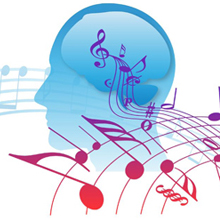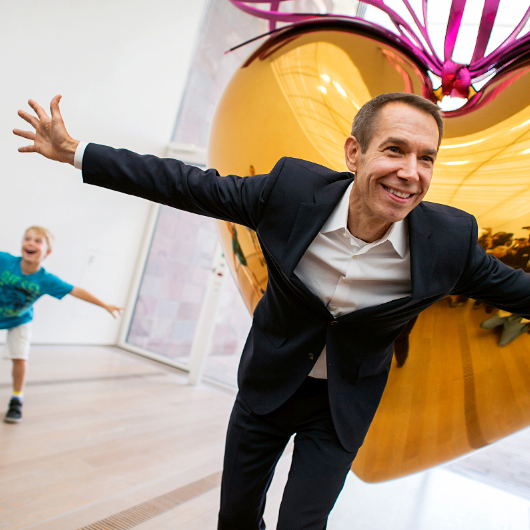On a recent afternoon, pianist Helen Sung took a break from playing jazz to listen to something different: the songs of birds at Columbia’s Zuckerman Institute. And as neuroscientist Sarah Woolley, PhD, explained to her how the birds learned songs from their avian parents, Sung recognized something familiar: the desire to communicate.
“Making sounds is the essence of communication, and that’s what jazz tries to do,” said Sung, who has spent the better part of a year learning about the brain as the first Jazz Artist-in-Residence at Columbia’s Zuckerman Institute.
“During my residency, I’ve discovered that many areas of neuroscience touch on questions of timing, decision making and deliberation — concepts most jazz musicians think about as we write music, practice with a band and perform,” Sung continued. “Learning that these concepts have biological bases has been mind-blowing. I was also elated to see how jazz, with its key elements of rhythm, improvisation, with its own unique language and vocabulary, is an ideal music form to complement studies of the brain.”
Sung will conclude her residency with a musical debut inspired by her experience: a collection of jazz compositions entitled “JazzPlasticity.” She will perform the pieces live with her band on Monday, November 18, at the Dear Mama Coffee in the Greene Science Center, home to Columbia’s Zuckerman Institute. The public performance will be followed by a conversation between Sung and New York Times journalist Claudia Dreifus.
During my residency, I’ve discovered that many areas of neuroscience touch on questions of timing, decision making and deliberation — concepts most jazz musicians think about as we write music, practice with a band and perform.
Sung’s host during her time at the Zuckerman Institute is Michael Shadlen, MD, PhD, a neuroscientist at the Institute who studies how the brain makes decisions. Working closely with Dr. Shadlen to develop the program was Chris Washburne, PhD, an acclaimed jazz musician, ethnomusicologist and Director of Columbia's Louis Armstrong Jazz Performance Program.
Dr. Shadlen lends a unique scientific insight into music. In addition to studying the brain, he is also a jazz guitarist.
“In my lab, we investigate and explain the brain mechanisms behind human behavior, complex thought and consciousness, and jazz is a celebration of all of that,” said Dr. Shadlen, who is also a professor of neuroscience at Columbia’s Vagelos College of Physicians and Surgeons. “I know that the connections made between Helen and the scientists here will continue to flourish long after her residency has concluded.”
During her residency, Sung spent hours exploring the mind, the brain and human behavior with Zuckerman Institute scientists. From Nima Mesgarani, PhD, she learned about the brain circuitry of the auditory cortex, the brain’s listening center. She read the autobiography of Nobel laureate and Institute codirector Eric Kandel, MD, and they came together to discuss how memories are formed. She spoke with Franck Polleux, PhD, about his research in brain development, discussed the genetic mechanisms that guide the behavior of all living things with Andrés Bendesky, MD, PhD. She explored the neuroscience of vision with Aniruddha Das, PhD, and conversed with Daniel Wolpert, PhD, on how the brain moves the body.
While talking with Daphna Shohamy, PhD, Sung described the challenges of switching from classical music to play jazz. The switch affected how she memorized a score and even how she thought about music. An expert in memory, Dr. Shohamy found this fascinating. The two are now discussing how brain-scanning experiments might shed light on such a shift affects memory.
Sung also organized listening parties for the Columbia community. She invited participants to listen to jazz and discuss their experience, as part of an effort to both demystify her art form — and to better understand what people hear when listening to jazz.
The residency also took Sung beyond Columbia and into the surrounding neighborhood. Last spring, she produced an event designed especially for people with dementia, their caregivers, friends and family. Co-organized by the not-for-profit Arts & Minds, Paula Croxson, PhD, of the Zuckerman Institute and the National Jazz Museum in Harlem, this event explored the science behind why music continues to touch us so deeply — even in the face of severe memory loss.
“As we prepared for the event, Paula and I discussed the fascinating connection between music and memory, and how music can engage the brain in unique ways,” recalled Sung, who was astonished when audience members suffering from severe dementia began to sing or dance. “It was like I was watching someone’s spirit being freed.”
The Zuckerman Institute’s Jazz Artist-in-Residence program was founded to foster a connection between music and the sciences. Advances in a field as wide-ranging as brain science necessitate an approach that transcends disciplines and boundaries, and this program offers a dynamic environment for musicians and scientists to come together to explore the mind and brain. The program also honors the musical legacy of Harlem where the Institute is based. The inaugural Jazz Artist-in-Residence was generously supported by Alan Kanzer.


